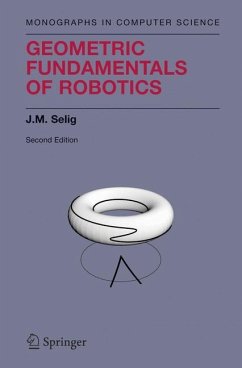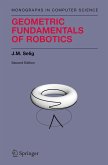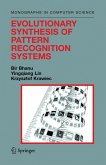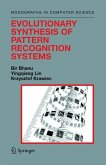Geometric Fundamentals of Robotics provides an elegant introduction to the geometric concepts that are important to applications in robotics. This second edition is still unique in providing a deep understanding of the subject: rather than focusing on computational results in kinematics and robotics, it includes significant state-of-the-art material that reflects important advances in the field, connecting robotics back to mathematical fundamentals in group theory and geometry.
Geometric Fundamentals of Robotics serves a wide audience of graduate students as well as researchers in a variety of areas, notably mechanical engineering, computer science, and applied mathematics. It is also an invaluable reference text.
Geometric Fundamentals of Robotics serves a wide audience of graduate students as well as researchers in a variety of areas, notably mechanical engineering, computer science, and applied mathematics. It is also an invaluable reference text.
From the reviews of the second edition:
"The aim of this book is to introduce mathematical tools, especially geometric ones, e.g. Lie groups and allied concepts, for solving problems in robotics. ... The author presents in a clear and detailed fashion solutions to problems in robot control and design, especially for robot manipulators. Hence, the compilation would be of interest and help to graduate students and research workers in robotics, mechanical engineering, computer science and applied mathematics ... a very sound and comprehensive treatise." (Robotica, Vol. 24, 2006)
"J.M. Selig ... has produced this 2nd edition in the series 'Monograph in Computer Science'. The first publication met the demand for such a book and the second is still a unique contribution to geometric concepts that are all-important to robotics. ... It does include much 'state-of-the-art' material and the author connects it to the mathematical fundamentals in group theory and geometry. Cyberneticians interested in this area will probably prefer this approach to basics, and it should serve both students and researchers ... . " (C.J.H. Mann, Kybernetes, Vol. 34 (7-8), 2005)
"This is the second edition of a book initially published with a slightly different title [Geometrical methods in robotics]. Two new chapters have been added. ... it excels in embedding the topic in a historical context, showing how the works of Ball one hundred years ago ... can now be expressed very elegantly and efficiently. The author excels also in showing the interplay between robotics and mathematics. In particular, the presence of differential and algebraic geometry is well outlined." (A. Akutowicz, Zentralblatt MATH, Vol. 1062 (13), 2005)
"The book presents a vast collection of algebraic and geometric methods that have found an application in the theory of mechanisms and robotics. ... I think that this book constitutes a fundamental contribution to mathematicalrobotics that will stimulate mathematically oriented robotics research, and foster a transformation of robotics into a scientific discipline." (Krzysztof Tehon, Mathematical Reviews, Issue, 2007 i)
"The aim of this book is to introduce mathematical tools, especially geometric ones, e.g. Lie groups and allied concepts, for solving problems in robotics. ... The author presents in a clear and detailed fashion solutions to problems in robot control and design, especially for robot manipulators. Hence, the compilation would be of interest and help to graduate students and research workers in robotics, mechanical engineering, computer science and applied mathematics ... a very sound and comprehensive treatise." (Robotica, Vol. 24, 2006)
"J.M. Selig ... has produced this 2nd edition in the series 'Monograph in Computer Science'. The first publication met the demand for such a book and the second is still a unique contribution to geometric concepts that are all-important to robotics. ... It does include much 'state-of-the-art' material and the author connects it to the mathematical fundamentals in group theory and geometry. Cyberneticians interested in this area will probably prefer this approach to basics, and it should serve both students and researchers ... . " (C.J.H. Mann, Kybernetes, Vol. 34 (7-8), 2005)
"This is the second edition of a book initially published with a slightly different title [Geometrical methods in robotics]. Two new chapters have been added. ... it excels in embedding the topic in a historical context, showing how the works of Ball one hundred years ago ... can now be expressed very elegantly and efficiently. The author excels also in showing the interplay between robotics and mathematics. In particular, the presence of differential and algebraic geometry is well outlined." (A. Akutowicz, Zentralblatt MATH, Vol. 1062 (13), 2005)
"The book presents a vast collection of algebraic and geometric methods that have found an application in the theory of mechanisms and robotics. ... I think that this book constitutes a fundamental contribution to mathematicalrobotics that will stimulate mathematically oriented robotics research, and foster a transformation of robotics into a scientific discipline." (Krzysztof Tehon, Mathematical Reviews, Issue, 2007 i)








